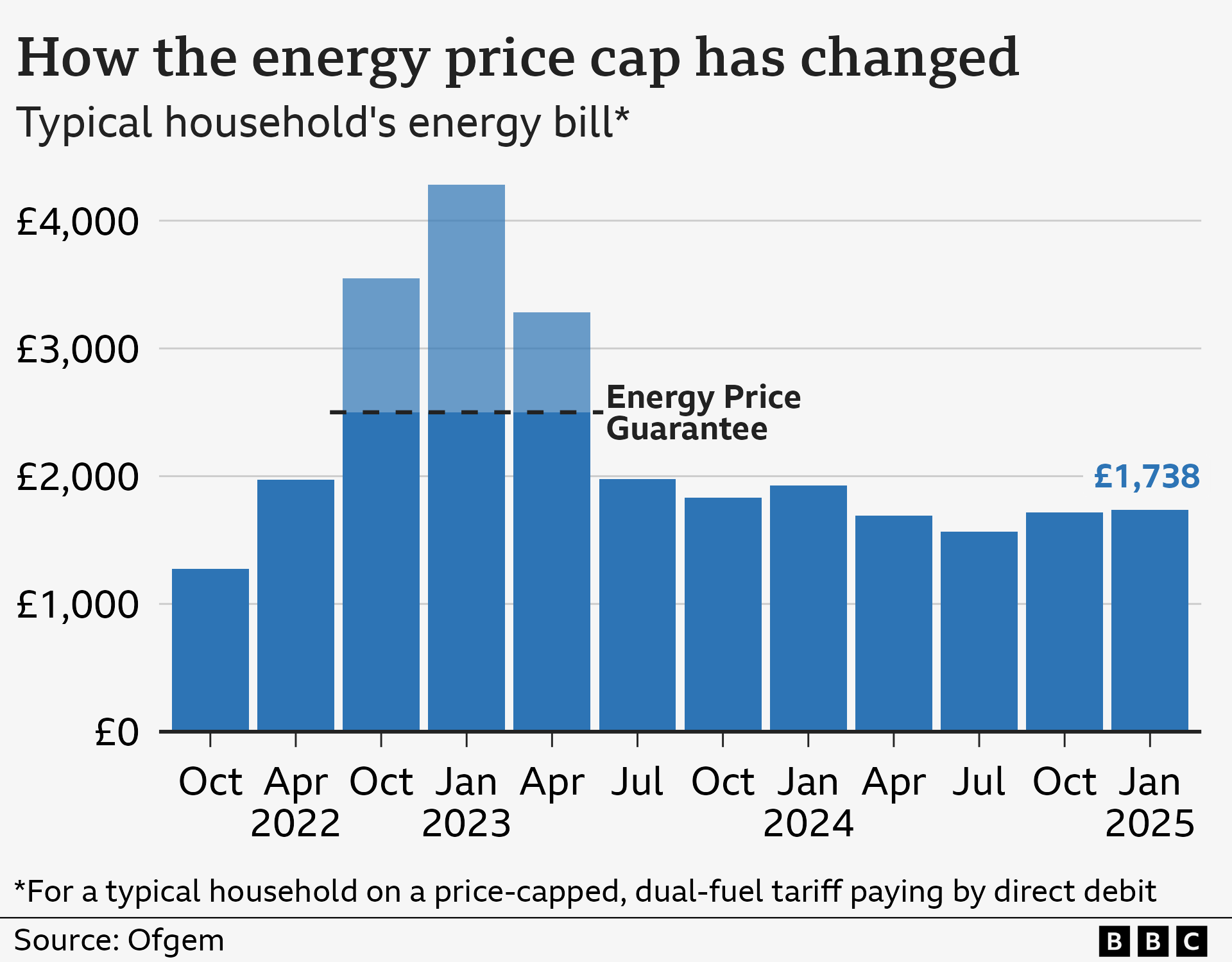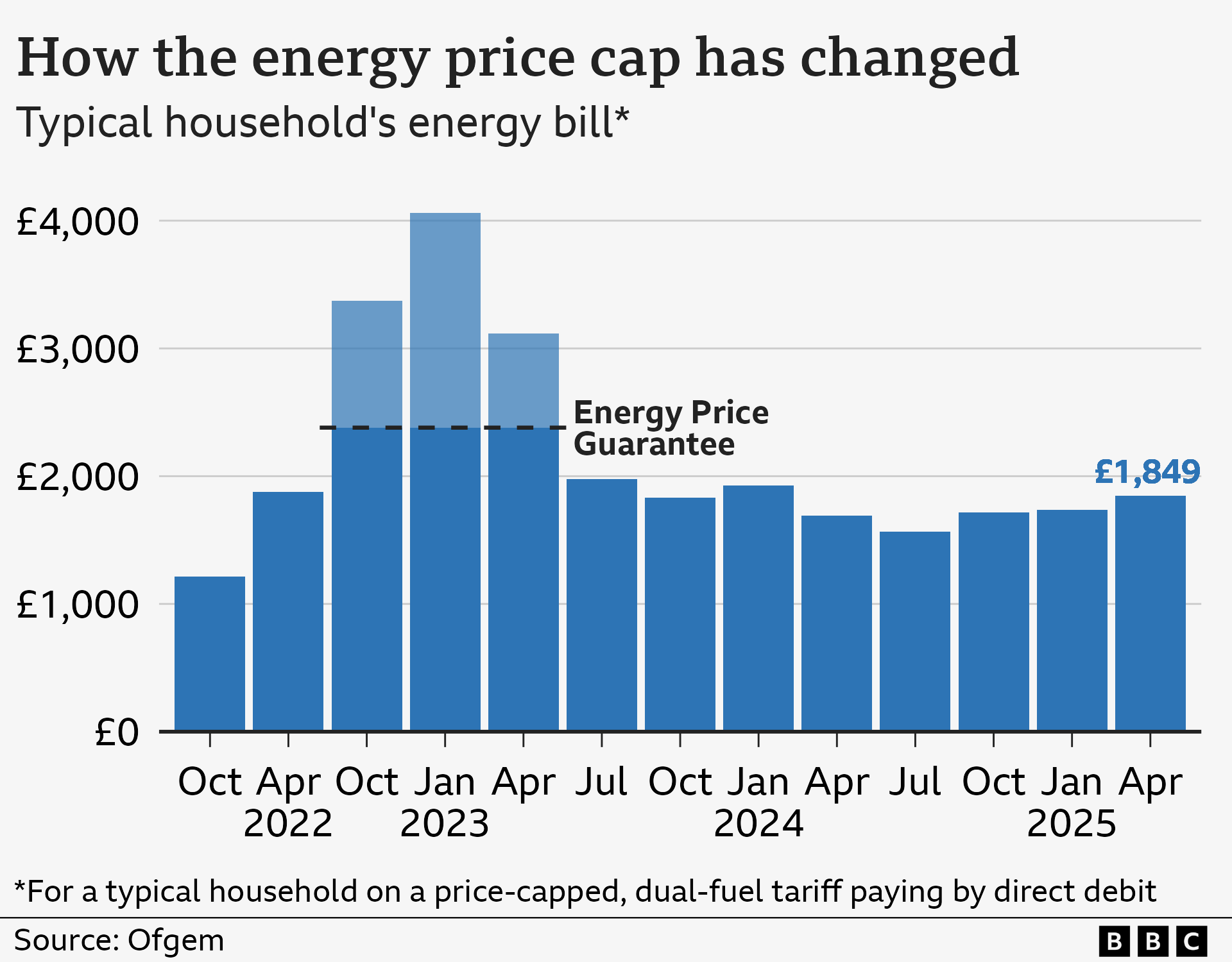Energy Bills
Comments
-
ShootersHillGuru said:For those of you with Octopus and who haven’t already done so, you can now get free of charge Octopus Mini
https://octopus.energy/blog/octopus-home-mini/Or you could use the app from these people https://loop.homes/Does gas and electric readings for hourly, daily, monthly or yearly and has a solar and battery storage simulator.Been using this since my in home display broke and I was told it would cost me money to replace.You need a smart meter for it to work1 -
The Octopus mini updates every minute I believe.fenlandaddick said:ShootersHillGuru said:For those of you with Octopus and who haven’t already done so, you can now get free of charge Octopus Mini
https://octopus.energy/blog/octopus-home-mini/Or you could use the app from these people https://loop.homes/Does gas and electric readings for hourly, daily, monthly or yearly and has a solar and battery storage simulator.Been using this since my in home display broke and I was told it would cost me money to replace.You need a smart meter for it to work0 -
I’ve just fixed for 18 months, with Octopus, for peace of mind, in case anything else unforeseen pops up0
-
I told my supplier E-on next that I no longer wanted gas and their engineer capped my supply. They still charged me the standing charge so I sent them an e-mail reminding them I don't have gas anymore in 2022. Since then I haven't been sending a reading for obvious reasons and got a letter saying I haven't sent a reading for a long time. I e-mailed them and asked why they sent it as I don't have gas and they replied they still have me down as having it and I have been paying a standing charge. I sent them the e-mail I sent in April 2022 and 'genorously' they have said they will refund me a year of the standing charge payments. I have e-mailed them asking why they ignored my 2022 e-mail and why they should only refund me a year!
They ae not crooks but like so many companies nowadays, customer service is very poor. All their resources go to sales. You can notify them and it is a matter of luck whether they act on it or not.0 -
FfsMuttleyCAFC said:I told my supplier E-on next that I no longer wanted gas and their engineer capped my supply. They still charged me the standing charge so I sent them an e-mail reminding them I don't have gas anymore in 2022. Since then I haven't been sending a reading for obvious reasons and got a letter saying I haven't sent a reading for a long time. I e-mailed them and asked why they sent it as I don't have gas and they replied they still have me down as having it and I have been paying a standing charge. I sent them the e-mail I sent in April 2022 and 'genorously' they have said they will refund me a year of the standing charge payments. I have e-mailed them asking why they ignored my 2022 e-mail and why they should only refund me a year!0 -
I got rid of gas because I don't like the idea of gas. I thought that electricty is cleaner but didn't realise that most of the electricity we use is taken from burning gas even though E-on claims all my electricy comes from green sources which doesn't make sense. I need to pay more attention in future.0
-
Quick question. I always resisted smart meters. Partly because I can't see how it would save me any money (some people I can), but mainly smart meters only used to work with 1 supplier and weren't transferrable if you changed company. So the question is, is this still the case or are they now homogenous?0
-
An up to date smart meter should switch if you change supplier. They only show what you are using and it’s up to you if you use the data to save money.1
-
Smart meters are able to cope with change of supplier.redman said:Quick question. I always resisted smart meters. Partly because I can't see how it would save me any money (some people I can), but mainly smart meters only used to work with 1 supplier and weren't transferrable if you changed company. So the question is, is this still the case or are they now homogenous?1 -
Sadly not quite true. If you have a SMETS1 meter (the first generation) they can't. A change of supplier makes them go "dumb" whereas SMETS2 meters transfer seamlessly.ShootersHillGuru said:
Smart meters are able to cope with change of supplier.redman said:Quick question. I always resisted smart meters. Partly because I can't see how it would save me any money (some people I can), but mainly smart meters only used to work with 1 supplier and weren't transferrable if you changed company. So the question is, is this still the case or are they now homogenous?
I had SMETS1 when I changed from British gas to EDF and it went dead, I had to threaten to take them to the energy ombudsman, and they had to come and install a new gas and electricity meter which solved it all.
I've since changed to Octopus and it transferred absolutely fine.
According to a Google search, you can work out which you have by checking your meter:
"SMETS1 meters should have a serial number beginning with 19P, while SMETS2 meters should have a number beginning with 19M."1 -
Sponsored links:
-
Thanks for this, signed up for it. Better than Loop/Octopus app etc as it looks to be completely live which is really good if you want to move round the house understanding in real time how much energy each thing uses.ShootersHillGuru said:For those of you with Octopus and who haven’t already done so, you can now get free of charge Octopus Mini
https://octopus.energy/blog/octopus-home-mini/
Basically looks like it will add real time functionality to the app which is pretty cool!1 -
Yeah, gives you real time (for elec) to the app with one. I've ditched the hud since getting it.Huskaris said:
Thanks for this, signed up for it. Better than Loop/Octopus app etc as it looks to be completely live which is really good if you want to move round the house understanding in real time how much energy each thing uses.ShootersHillGuru said:For those of you with Octopus and who haven’t already done so, you can now get free of charge Octopus Mini
https://octopus.energy/blog/octopus-home-mini/
Basically looks like it will add real time functionality to the app which is pretty cool!
Could be waiting anywhere between a few weeks to 6mths for one though.0 -
When I applied for mine I was informed it would take approximately two weeks but we’ll see.cafcpolo said:
Yeah, gives you real time (for elec) to the app with one. I've ditched the hud since getting it.Huskaris said:
Thanks for this, signed up for it. Better than Loop/Octopus app etc as it looks to be completely live which is really good if you want to move round the house understanding in real time how much energy each thing uses.ShootersHillGuru said:For those of you with Octopus and who haven’t already done so, you can now get free of charge Octopus Mini
https://octopus.energy/blog/octopus-home-mini/
Basically looks like it will add real time functionality to the app which is pretty cool!
Could be waiting anywhere between a few weeks to 6mths for one though.1 -
That'd be a good turnaround! They seem to fling em out in batches.ShootersHillGuru said:
When I applied for mine I was informed it would take approximately two weeks but we’ll see.cafcpolo said:
Yeah, gives you real time (for elec) to the app with one. I've ditched the hud since getting it.Huskaris said:
Thanks for this, signed up for it. Better than Loop/Octopus app etc as it looks to be completely live which is really good if you want to move round the house understanding in real time how much energy each thing uses.ShootersHillGuru said:For those of you with Octopus and who haven’t already done so, you can now get free of charge Octopus Mini
https://octopus.energy/blog/octopus-home-mini/
Basically looks like it will add real time functionality to the app which is pretty cool!
Could be waiting anywhere between a few weeks to 6mths for one though.0 -
Energy bills for a typical household will rise again in January, with prices expected to remain relatively high into the next year.
It means someone paying by direct debit and using a typical amount of gas and electricity will pay £1,738 a year, or £21 a year more, which remains high compared with pre-Covid norms.
The cap is 1.2% higher than current levels, and means a household bill will typically rise by £1.75 a month.
It is also 10% down on the same period last year, but Ofgem said many billpayers would still be stretched.
"We understand that the cost of energy remains a challenge for too many households," said Tim Jarvis, from the regulator.
"However, with more tariffs coming into the market, there are ways for customers to bring their bill down so please shop around and look at all the options."
0 -
The "typical household" always makes me laugh. What is a typical household? The variation in this must be enormous.3
-
One bedroom flat in Plumstead or a 5 bedroom house in Farnborough park.redman said:The "typical household" always makes me laugh. What is a typical household? The variation in this must be enormous.
Pretty similar.1 -
We are one of the few countries in Europe with natural resources. Petroleum, oil, gas, yet our energy costs are one of highest in the West. Norway created a sovereign wealth fund, but our only income seems to be extraction licences to companies in tax havens. Isn't it time the country used the profits from oilfields to benefit the country in a "Norway" way?
The pricing of energy needs to be changed. Unless it has been replaced, it seems the price companies charge for electricity is that of the most expensive power production. We can have 95% wind power but still pay the price of oil fueled power stations. And the big monopolies cream the profits.
I have studied economics and know you can have only a single monopoly, but our current society is not operating under the capitalist template of competition. Markets are being controlled by insidious anti-competition multi-nationals, conspiring, to the detriment of consumers.
.2 -
Energy bills for a typical household will rise by more than £100 a year in April under regulator Ofgem's new cap - a higher than expected increase adding pressure on people's finances.
The 6.4% increase means a household using a typical amount of gas and electricity will see their annual bill rise by £111 a year, or £9.25 a month, taking the total bill to £1,849 a year.
1 -
I’d bite your hand off for £18493
-
Sponsored links:
-
Another extra bit of inflation then, lovely.0
-
Fear not the government promised me my billls will be £300 a year less under them.se9addick said:Another extra bit of inflation then, lovely.So assuming that baseline was pre the election we can look forward to a substantial reduction in the medium term and a counter to inflation.Or perhaps not…
😉🙂
Time to fix your rate if you haven’t already.0 -
5
-
Said on the radio this morning that it will be an 18% rise since July. So much for the promise by Millichump that our bills would be lowered by £300 if the gullible put an ex in his box.
Add to the nice letter i got last week telling me my water bill is going up 300%. Thanes Water.
Cheers Ed you are such a star.3 -
300% water bill rise and it's Ed Milliband's fault?1
-
Chippycafc said:Said on the radio this morning that it will be an 18% rise since July. So much for the promise by Millichump that our bills would be lowered by £300 if the gullible put an ex in his box.
Add to the nice letter i got last week telling me my water bill is going up 300%. Thanes Water.
Cheers Ed you are such a star.
You should have seen some of the promises made going back, especially Brexit. Pure gullible stuff that was lapped up by the chumps so that we are all still picking up the pieces from. I reckon you'd have properly lost your shit then10 -
It's because we are too reliant on gas which is sold on international markets. Our energy bills are linked to the price of gas which is much more expensive than renewables. The sooner we move to renewable sources of energy the better it will be for our bills.Chippycafc said:Said on the radio this morning that it will be an 18% rise since July. So much for the promise by Millichump that our bills would be lowered by £300 if the gullible put an ex in his box.
Add to the nice letter i got last week telling me my water bill is going up 300%. Thanes Water.
Cheers Ed you are such a star.5 -
I know time to give back what was dished out, What goes around comes around.ThreadKiller said:Chippycafc said:Said on the radio this morning that it will be an 18% rise since July. So much for the promise by Millichump that our bills would be lowered by £300 if the gullible put an ex in his box.
Add to the nice letter i got last week telling me my water bill is going up 300%. Thanes Water.
Cheers Ed you are such a star.
You should have seen some of the promises made going back, especially Brexit. Proper gullible stuff that was lapped up by the chumps so that we all are left still picking up the pieces. I reckon you'd have properly lost your shit then
At least they knew what job they did, dont make it up as they go along ie Econmic gurus and solicitors. More porkies to come. Clearly happy to stick up for blatant lies then. Unless its someone else of course.
3 -
Interesting when some people cant keep their promises its dismissed and ridiculous excuse's offered, yet when others do the same its Armageddon.ME14addick said:
It's because we are too reliant on gas which is sold on international markets. Our energy bills are linked to the price of gas which is much more expensive than renewables. The sooner we move to renewable sources of energy the better it will be for our bills.Chippycafc said:Said on the radio this morning that it will be an 18% rise since July. So much for the promise by Millichump that our bills would be lowered by £300 if the gullible put an ex in his box.
Add to the nice letter i got last week telling me my water bill is going up 300%. Thanes Water.
Cheers Ed you are such a star.0 -
Hang on a minute. You were on this very thread defending the last govt and saying energy bills were not in their control and now you're saying this?Chippycafc said:Said on the radio this morning that it will be an 18% rise since July. So much for the promise by Millichump that our bills would be lowered by £300 if the gullible put an ex in his box.
Add to the nice letter i got last week telling me my water bill is going up 300%. Thanes Water.
Cheers Ed you are such a star.
Cant have it both ways sonny jim.10















